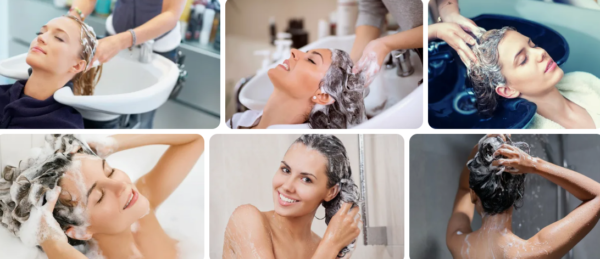Zero shampoo and conditioner, debunking myths and misconceptions, exploring the science behind it, and ultimately answering the question: does it really work? Shampoo and conditioner have been the cornerstones of our hair care routines for decades. But what if there was another way? Enter the “zero shampoo and conditioner” movement, a growing trend challenging traditional methods and advocating for a more natural approach.

The Zero Shampoo and Conditioner Revolution: How to Make the Switch
Transitioning to a zero shampoo and conditioner routine might sound daunting, but it’s surprisingly achievable. Here’s how:
Embrace the “wash day” transition: Hair naturally produces oils that condition and protect it. Initially, your hair might feel greasy as it adjusts. Be patient! This phase usually lasts a few weeks.
Apple cider vinegar rinse: Dilute apple cider vinegar with water for a gentle, clarifying rinse after a sweaty workout or to remove product buildup.
Scalp massage: Stimulates blood flow and promotes healthy hair growth.
Hair masks: Deep conditioning treatments are still okay! Opt for natural masks with ingredients like avocado or coconut oil.

Zero Shampoo and Conditioner: Debunking Myths and Misconceptions
There are a few misconceptions surrounding the zero shampoo and conditioner movement:
| Myth | Fact |
| Your hair will get perpetually greasy. | The scalp adjusts oil production over time. |
| You can’t cleanse your hair properly without shampoo. | Water and natural rinses can effectively remove dirt and sweat. |
| Zero shampoo is only for certain hair types. | With proper adjustment, it can work for most hair types. |

The Science Behind Zero Shampoo and Conditioner: Does It Really Work?
There isn’t extensive scientific research on the zero shampoo and conditioner movement yet. However, some studies suggest that harsh detergents in conventional shampoos can strip the scalp of natural oils, potentially leading to dryness and irritation. Zero shampoo and conditioner allow the scalp to regulate oil production naturally. This can promote overall hair health, reduce frizz, and leave hair feeling soft and manageable.
The zero shampoo and conditioner movement isn’t about abandoning hygiene, but rather finding a gentler, more natural approach to hair care. If you’re curious about ditching the suds, give it a zero shampoo and conditioner try! Your hair might just surprise you.
Zero shampoo can work for most hair types, but the transition period can vary. Fine hair might adjust quicker, while thick or curly hair might take longer. Pay close attention to your hair's needs and adjust your routine accordingly. Consider using a boar bristle brush to distribute natural oils and maintain shine.
The initial greasy adjustment period typically lasts 2-4 weeks. During this time, your scalp is regulating natural oil production. Scalp massages and apple cider vinegar rinses can help manage oiliness. Be patient – your hair will eventually adapt and find its natural balance.
Technically, zero shampoo refers to avoiding traditional shampoos entirely. However, some people find a lightweight conditioner helpful during the transition or for occasional deep conditioning. Look for natural conditioners free of harsh chemicals that might disrupt your scalp's natural balance.